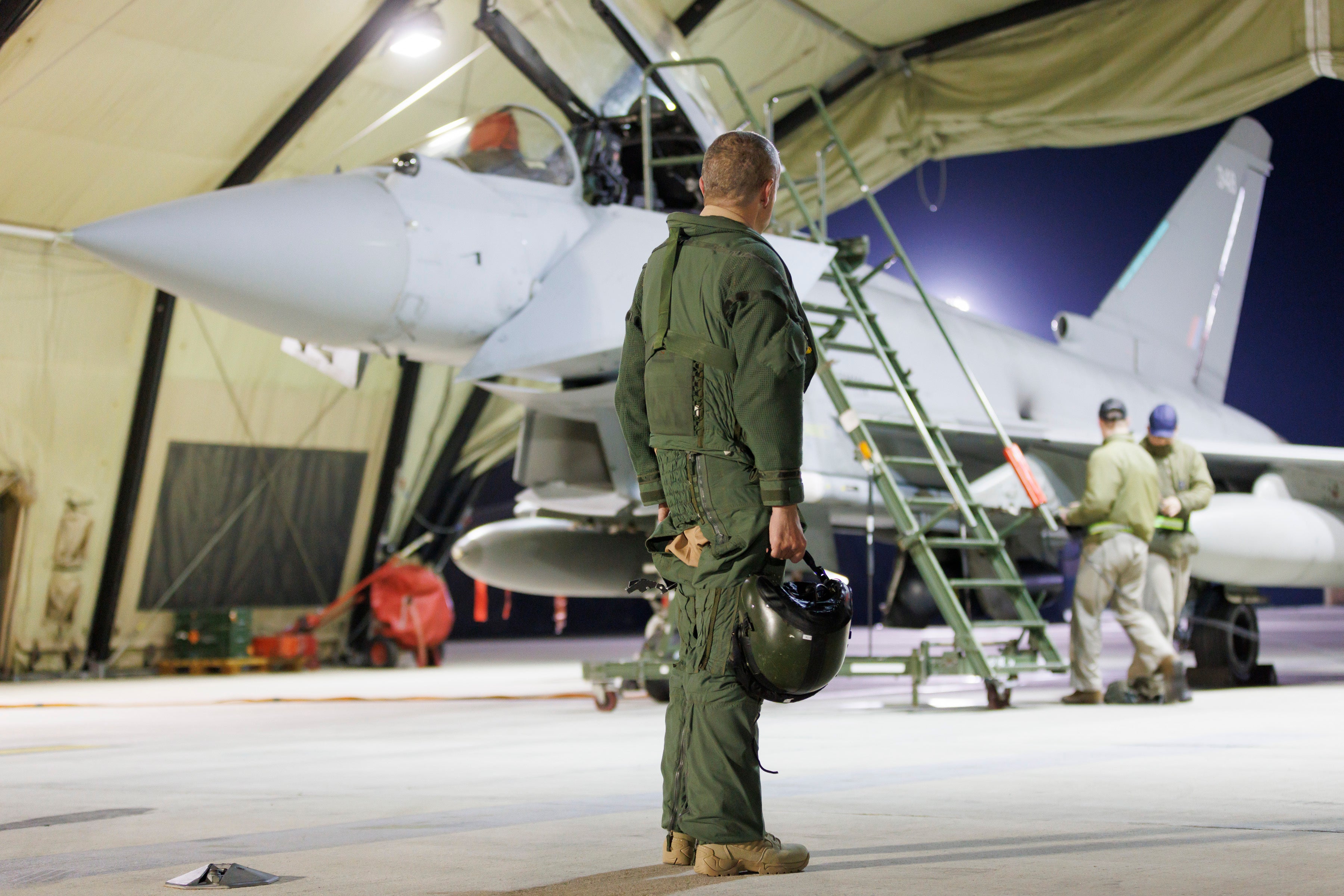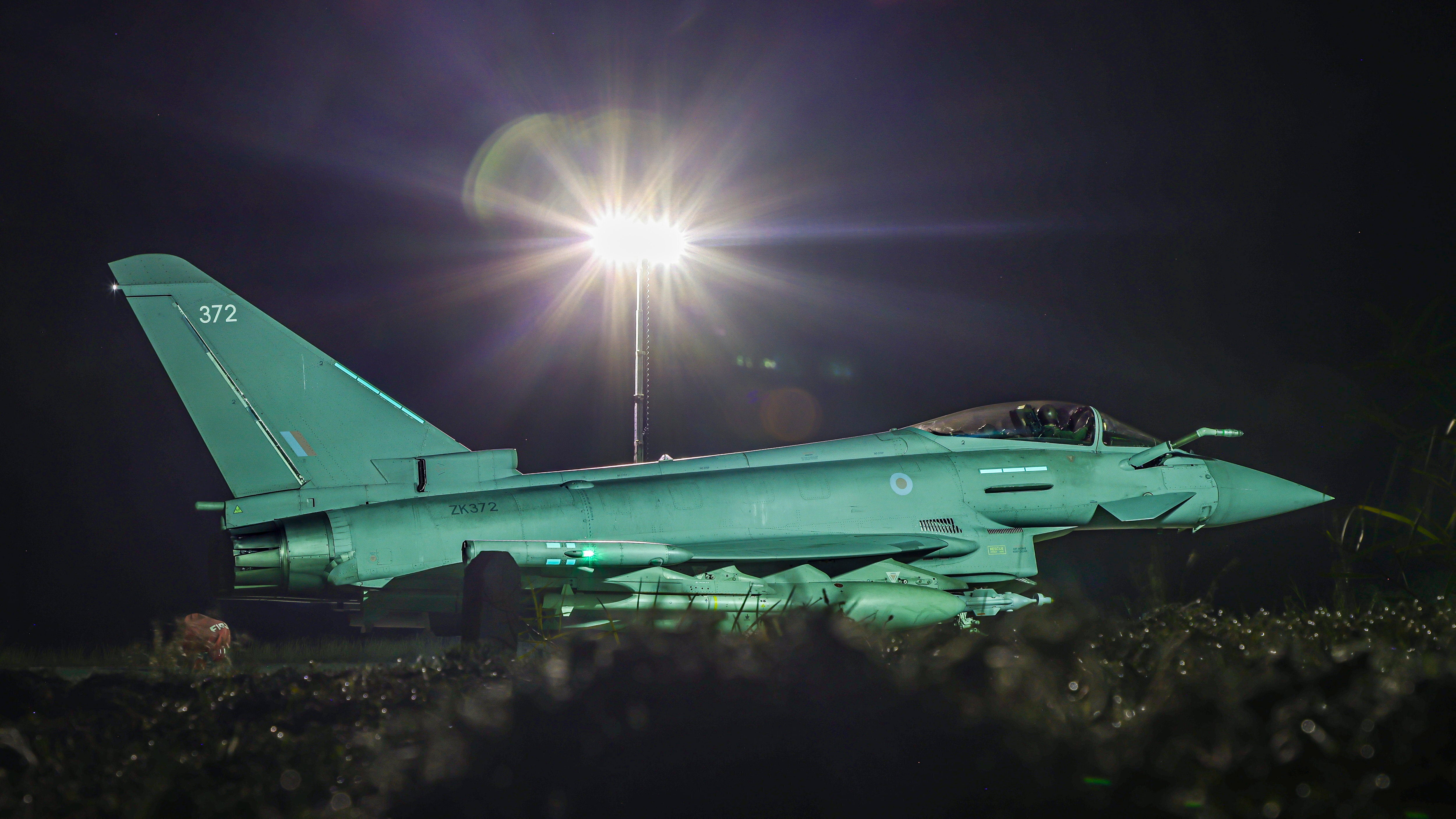UK will not have air supremacy over enemies in future wars, RAF chief warns
Chief of the Air Staff Sir Richard Knighton says the UK faces the most significant sets of hostile states in decades
Your support helps us to tell the story
From reproductive rights to climate change to Big Tech, The Independent is on the ground when the story is developing. Whether it's investigating the financials of Elon Musk's pro-Trump PAC or producing our latest documentary, 'The A Word', which shines a light on the American women fighting for reproductive rights, we know how important it is to parse out the facts from the messaging.
At such a critical moment in US history, we need reporters on the ground. Your donation allows us to keep sending journalists to speak to both sides of the story.
The Independent is trusted by Americans across the entire political spectrum. And unlike many other quality news outlets, we choose not to lock Americans out of our reporting and analysis with paywalls. We believe quality journalism should be available to everyone, paid for by those who can afford it.
Your support makes all the difference.The UK will not enjoy supremacy in the air in future warfare but will have to fight against an “ever-improving enemy” for control, the head of the Royal Air Force has warned, as he claimed that the UK faces the most difficult strategic environment in decades.
Air Chief Marshal Sir Richard Knighton, chief of the Air Staff, suggested the era of unchallenged Western dominance in the air had come to an end, adding that it was imperative the RAF modernise its efforts to stay ahead of the likes of China and Russia.
Speaking at the Royal United Services Institute (RUSI), a defence think tank, for the annual Lord Trenchard Memorial Lecture, Sir Richard praised the strength of the RAF but said that it had spent the past 25 years preparing for a now outdated form of warfare.

“Throughout my career, we have enjoyed air supremacy, never mind air superiority, at least above 10,000 feet,” he said. “That is not going to be the case in the future. It seems clear to me that we are going to have to fight for control of the air.
“We have spent the last 25 years or more optimising ourselves for the types of conflict we saw in the Balkans, the Middle East or Afghanistan. We as a service responded well and adapted our systems and capabilities for those wars.

“But this is not the threat we face today. We need to become match fit for the new, bigger and more important game.”
Over the last three decades, the UK and its allies have enjoyed considerable dominance in the air over their adversaries. That advantage, said Sir Richard, has meant the need to adapt fighting capabilities has been less urgent.
But the rapid growth of the Chinese military, as well as the mobilisation of Russia’s war economy to perpetrate its full-scale invasion of Ukraine, have brought into sharp relief the need for the UK to modernise.
The involvement of the private sector in shaping warfare, with the introduction of artificial intelligence and drones proving critical in the likes of Ukraine and Gaza, has also sped up the cycle of adaptation in war.
Sir Richard said that cycles of adaptation in Ukraine, for example, which encapsulates the creation of a weapon, of a countermeasure, and of a response to that countermeasure, were just three weeks long.
They have become so short, he added, that Kyiv was creating a response to the countermeasure at the same time as creating the original weapon.

The RAF will bring into service two new fleets of aircraft next year, including E-7 command and control planes and remotely piloted endurance aircraft known as Protector, as part of its bid to remain among the most modern and capable air forces.
But Sir Richard pointed out that after the introduction of these two aircraft, the RAF does not expect to bring in major new aircraft until at least 2035, meaning that “the force we have [by next year] is pretty much the force we will have to fight with until … later in the next decade”.
While the UK’s current Typhoon and F-35 aircraft, designed in the 1980s and 1990s respectively, are due for upgrades in the coming years, which Sir Richard says will “bridge” the transition into 2035, he added that the UK “cannot afford to stand still over the next 15 years in the face of an evolving threat”.
He name-checked the recently introduced Chinese J-20 and slightly older Russian Su-57 fighter jets, both of which claim to have advanced stealth capabilities, as reasons for the need to continue improving the RAF’s own aircraft.
The proliferation of China and Russia’s capabilities, he said, “means that we also need to plan for the next generation of capabilities now”.
While highlighting the significance of the threat posed by the China-led quadrumvirate of Russia, Iran, North Korea and Beijing, Sir Richard did not suggest the UK faced an immediate threat of direct attack.
But he suggested the swelling anti-Western axis should nevertheless spur the UK and its Western allies on to create a credible deterrence to prevent future wars.
“Three decades of relative peace and the absence of any serious, direct threats to the UK has left us with limits to our capability to respond to some of the threats we could face in the future,” he said.
“Deterrence and hard power matter more now than they have for many years. If it fails, we are doomed to repeat the brutal suffering of our past wars.”
Join our commenting forum
Join thought-provoking conversations, follow other Independent readers and see their replies
Comments